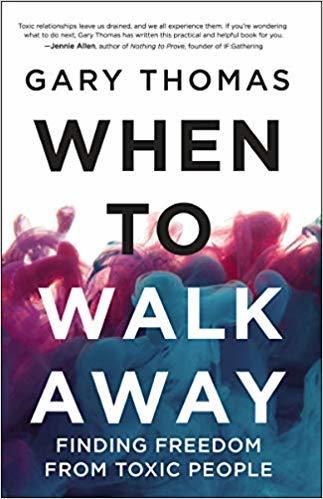Sheila Wray Gregoire's Blog, page 65
February 4, 2020
26 2 Player Board Games for Couples
Do fun games for two people exist?
Absolutely! Best of all–finding a board game for two players can build your marriage. And here at To Love, Honor and Vacuum, we’re all about fun marriages!
So I thought I would write a post on games you can play with your spouse that need only two players. I originally ran this post back in 2014, and it went really big. But since then, Keith and I have found so many more board games for couples that we love, and I thought it was time for a revised version of this post–especially right in time for Valentine’s Day!
This post contains affiliate links that help offset the costs of this blog.
When we were first married, most of the two-player board games that were around were the traditional ones–Monopoly, Risk, Scrabble, Boggle. Monopoly can be a dangerous game, because it tends to be quite vicious and cut-throat. And Risk just takes FOREVER, and can get vicious, too. And Scrabble? You just have to be really good at words, and often only one of you is (I’ll share my favourite Scrabble replacements below!).
But happily, there are so many more two-player board games available now, and just in time for Valentine’s Day, I’d like to share my favourites.
Chess-Substitute Board Games for Couples
Enjoy chess? Then play away! But chess can take a long time, and it’s often frustrating if one person is significantly better than the other. So here are some chess-like board games that are much faster–and easier.

1. Hive
One of my new favorites–really unique, really challenging, and really fun. Like dominoes, with Hive you build your own game by putting the tiles together in different ways. It can be learned in just a few minutes, and the matches are really quick. Keith and I often bring Hive with us when we go out to pubs to eat or to restaurants, because it’s very portable and fast.
I have a longer review of Hive here.

See it on Amazon!

2. Onitama
We tried this one at a local board game cafe and were quickly hooked! Each game you draw five cards which each have their own movements. You have two cards in front of you, and one wild card. You have to make one of those two moves. But after your move, the card you used becomes the wild card, and you take the current one. So you have to think ahead and make sure you don’t give your opponent a card that can make them win!
Because you only use five movement cards each game, every time you play it’s like a new game, so you can’t just memorize a strategy that works. Makes it more fun for beginners, and for people who aren’t as strategic!

See it on Amazon!
Board Games for Two that Use Spatial Skills
I am totally NOT a spatial-skills kind of gal. But I love games that help me think outside the box–literally–and help me see things in new ways. That’s why I love these games for couples!

3. Tiny Towns
This is a new one that Keith and I recently discovered at our board game cafe (and which is one of the hottest sellers this year!). It’s a spatial game, where you have to build different buildings on your grid, but each time you build a building, you use up space that could be used for more buildings. So you have to plan ahead.
But what makes this one awesome is that every game is a different combination of things that need to be built, so no one can “coast”. You have to adopt a new strategy each time!
It’s great for spatial skills, too. Tiny Towns gets harder the more people play it, so I actually prefer it with only two people.


See it on Amazon!

4. Photosynthesis
This is one of our new ones for 2020!
Can be played with 2-4 players. Basically, you build a forest. But there’s only one problem: your trees need sunlight to grow. And the sun moves around the board–and bigger trees end up shading the smaller ones.
It doesn’t take that long, either. Plus it’s just really, really pretty.

See it on Amazon!

5. Patchwork
Can you take the quilt pieces and fill up the blocks on your quilt?
Okay, that sounds really girly, but we actually quite enjoyed this game, and I’ve had other people tell me this is a great game for couples to play in the comments on Facebook! The quilt blocks fit in all different shapes, and you have to choose the ones that give you the most points–and the most ability to choose even more quilt blocks.

See it on Amazon!

6. Blokus for Two
It’s all about fitting pieces in–but your pieces can only touch by the corners!
The four player version is one of our go-to family board games, because kids can play it when they’re really young. This two-player edition challenges your mind, but it’s also super quick. Another one we frequently take with us to date nights in pubs!

See it on Amazon!
Cooperative Board Games for Couples
Does playing board games as a couple create more problems in your marriage than create harmony? Is one of you just too competitive? Then try these cooperative games–where you either win together or lose together!

7. Pandemic
A pandemic has broken out–and it’s your job to prevent it from spreading! This is a really engrossing, challenging game for couples who want something to sink their teeth into. You can play with 2-4 players, and each of you plays one specialist who can help defeat the disease. You have to find the four possible cures before the game is over.
This is our absolute favourite. We play this one as a family all the time, but it works great with just two players, too–you each just choose two specialists to play. My daughter Katie bought this when she was engaged to play with her then fiance because they both love it so much (plus he’s a medic, so it fits)!

See it on Amazon!

8. Codenames Duet
It’s a cooperate card game that’s surprisingly challenging–and super fun! Based on the original party Codenames game, this two-player version is a whole new game that many find even more intriguing. Using only one-word clues you have to try to identify the “secret agents” on the board. And because it’s cooperative–this couple game won’t lead to couple fights!
See it on Amazon!

9. Forbidden Island
This card game has tons of strategy, but the nice thing is it only takes 30 minutes. You can learn it quickly, but there’s a ton of different scenarios you can play. And it was voted Mensa Favourite Game in 2010! So you can tell your hubby that if you guys play it it means you’re super smart.
See it on Amazon!

10. Forbidden Desert
You’re stranded in a desert, and you have to get out before you die of thirst–or something worse. Another cooperative game that’s full of strategy, and takes only about 30-45 minutes. If you’ve mastered Forbidden Island, this game is one-step up, with individual resource management and a board that’s always changing.
See it on Amazon!

11. Commissioned
Can you work together to spread the gospel–and write the New Testament? In this Bible based game, you all play different apostles, with different gifts and strengths. And you need everybody’s gifts to get the gospel around the known world, and get the New Testament written, despite trials and persecutions.
We played this a ton last spring, and won about 50/50. What really surprised me was how accurate it was–you really do need the apostles’ gifts to actually get everything done.
I wrote a longer review of Commissioned in this family board games post.

See it on Amazon!
Strategy Board Games for Couples
Maybe you don’t mind a little bit of healthy competition–and games that require a lot of strategy! Here are some great competitive two-player board games that we really love.

12. Wingspan
This was the game we couldn’t stop playing Christmas of 2019! Keith’s a big bird watcher, and the game comes with cards of about 180 birds, each with their own “action” or attribute that helps you along the game. Each turn you have to choose whether to get a new bird, lay an egg, get some food, or play a new bird. But to play, you need food and eggs. And watch out for the hawks!
We love this, and find that it’s actually BETTER as a two-player game than a 4-player game because it goes so much faster. But a great game all round!
(And here’s a picture of four of us playing it at Christmas!)

See it on Amazon!

13. Seven Wonders Duel
7 Wonders is one of our favourite board games–we play it every Christmas with the family! So last Christmas, when I saw that a 2-player version was available, I jumped at it and bought it for Keith. You play different eras in history, with the goal to build some of the 7 wonders of the world, while also advancing your technology. And the best part? I always win! A super fun game that you can play with your spouse in under half an hour.

See it on Amazon!

14. Carcassone
This is my daughter Katie and her husband David’s go-to couple game! Can be played with up to 6 people, but works fine with 2. It takes about half an hour. Basically you each select a tile on each turn that you place, creating a medieval city with roads and monasteries and farms. It’s hard to explain on a blog, but easy once you see it. I like it when we have people over because it doesn’t take long to explain. And because you create the terrain each time you play, it’s different every time, too! Plus there are a myriad of super fun expansions that add more variety to the game. (In fact, if you’re an expansion person, I highly recommend the Big Box version that comes with multiple expansions. This is the one Katie & David have and we love playing it!).
See it on Amazon!

15. Ticket to Ride
Your task is to build a railway connecting two cities. The hardest part? Choosing which routes to keep, and which to turn in. And then getting yours done before your spouse gets his completed! The original Ticket to Ride is North American based, but the expansions are for Europe, India, and Africa. Again, a game that can be played with many more players, but still works with just two–in fact, it’s harder to be mean to each other with only two people, so it may be a more peaceful version to use as a couple game.
This is another of our big party games for when we have other people over.
See it on Amazon!
Card-Based Games for Couples
Some fun strategy games, played with cards (so it’s super portable!).

16. Jaipur
My kingdom for a camel! This super fun game, which takes about 30 minutes, will send you trading and hoarding and figuring out which trader will be selected to go to the king’s court. It’s risky–but fun!
See it on Amazon!

17. Rivals for Catan
Love playing Catan (or Settlers of Catan for those of us who were hooked early?). Well, there’s a two-player version where you just use cards. This one has been recommended in the comments section so often whenever I talk about games that I had to include it.
See it on Amazon!

18. Exploding Kittens
It’s a card game about kittens and explosions and sometimes goats. And it’s hilariously fun! It was the #1 most backed Kickstarter project ever. And it can be played as a family, as well, so you’ll get your money’s worth! Distract the kittens with laser beams! Defuse the explosions! This is a lighthearted game, that doesn’t require a ton of strategy. But it’s good for those nights that you just want to unwind and not think too hard.
See it on Amazon!

19. Cribbage
How about a card game for couples that actually involves real cards?
February 3, 2020
The Love Your Body Series: Treating Your Body as a Friend, Not an Enemy
Can you truly believe that your body is your friend?
How many of you look in the mirror and feel like weeping? You hate shopping for jeans because nothing ever fits right. You do your best not to think about anything below the neck throughout the day. When you sit down on the toilet (it’s okay to mention it, we all do it!), all you see is the rolls of fat.
You’re angry at all the jiggling. You wish you could remove all the mirrors from the bathroom.
When making love, it’s hard to enjoy it when you know your body looks nothing like the pictures of the old you in the wedding photos.
You’ve tried starving yourself (that didn’t last long). Every few years you use Lent as an excuse to quit chocolate, but you ended up raiding Haagen Dazs vanilla instead.
If that’s you, I’d say you’re the typical woman. You beat yourself up over your body.
But isn’t that the mindset of someone who sees her body as her enemy?
If your body is your enemy, then your goal is to conquer it. You’ll always be at war–with yourself.
That sets you up for a lifetime of hatred, failure, and even ingratitude. And hatred of self rarely led to a successful weight loss strategy.
What if there were another way? What if God wants us to see our bodies as precious and wonderful–as our friends?
That’s what I want to talk about for our series this month: How we can get more in touch with our bodies, and stop feeling as if our bodies are enemies who have betrayed us. I want to help us look at how to embrace our bodies as friends.
After all, if we were to treat our body as our friend, what would we do?
First, we wouldn’t hide from it. We’d be thankful for what it could give us without expecting more than it can give. We wouldn’t berate and lecture our friend; we’d encourage and cheer it on! We’d want the best for it, which means that we would feed it well, give it what it really needs, and exercise it.
We’d want others to enjoy our friend, too, so we would show off our friend in the best possible light. We would dress it well, not drown it in oversized, baggy clothes. We would be proud to be seen with our friend.
And we’d enjoy living life with our friend! We’d kick the soccer ball around with our kids. We’d stretch and lift stuff and be amazed at how awesome our friend is. We’d cheer her on to get even better! If she’s only a beginner when it comes to what she can do, we’d encourage her to keep going, and we’d celebrate every small success.
And we wouldn’t condemn our friend to have no sex life until our friend shaped up; we would want our friend to live life to the fullest that she can, right now, where she was.
If your body is your enemy, then your goal is to conquer it. You’ll always be at war–with yourself.
(Click here to tweet this quote)
But what if you find it hard to accept your body?
It can be difficult when we’re just not happy with our bodies, or we feel as if they’re going downhill. One woman I know was either pregnant or breast-feeding for about eight years straight. Then one summer she was finally done, and the family headed to the beach. Thankful to be without a child hanging off of her, she lay down, face up, on a towel, only to find that one boob had migrated under one armpit, and the other under the other. Everything was sliding where it was not supposed to. How do you love your body when that happens?
But what if we could reframe it? What if we could celebrate what our body had done–give birth and give nourishment–and consider some of the sagging to be battle wounds that we could be proud of?
Or what if you grew up seeing your body always as they enemy?
Maybe you were told that your body would cause boys to sin and boys to lust, and so you had to cover up. Maybe you heard this message, and then you were ALSO sexually abused, making you feel that there was something inherently wrong with you?
When I wrote about how the “your body is a stumbling block to boys” message was so unhelpful, one woman left this comment:
When I was a teacher at a Christian school in my 20s I ended up on the “dress code committee” in charge of revisions to the existing dress code. Because the building was not air conditioned, they had decided to allow shorts in warm weather months (early fall and late spring). We had to determine an appropriate length. In the course of the discussions, I was forced to stand up and be the example of why longer shorts were better. The administrator in the group explained to the room that I was a good example of the problem with shorts as my legs were “just too long” and no matter what I wore, unless it was a long baggy skirt, I would be a “stumbling block for men” and my body was “really just a problem”.
I can’t tell you how damaging it is to be told BY YOUR BOSS that God made you wrong and your existence is essentially a “problem” for every male person you ever meet.
And many, many girls experienced sexual bullying and sexual jokes at their expense when they simply matured fast, and had a large chest.
Related Posts You May Enjoy:
Why “Don’t Be a Stumbling Block” is a Really Bad Modesty Message
Stories of Big-Bust Shame from Hitting Puberty Early
My 40% Modesty Rule: A Shame-Free Way of Talking about Modesty
Of course, sometimes our bodies do betray us, and we develop chronic conditions that make life painful, or we develop illnesses that make life far too short.
That is the reality of life in a fallen world. But let’s not lose sight of the good things that God intended for us through our bodies.

God made sex to be AWESOME!
It’s supposed to be great physically, emotionally, and spiritually.
Feel like something’s missing?
Check out The Good Girl's Guide to Great Sex!
We have so many negative messages about our body in this society.
In the wider society, we hear that we’re not good enough and we don’t measure up. In our marriages, we may feel as if our body isn’t good enough because our husbands struggle with pornography (or your husband uses porn). In the church, we may feel as if our bodies are bad because we’ve grown up hearing that they are the cause of sin.
But this isn’t the message that God gives to us. When He made us–and that included our bodies–He said that it was good.
And it is with your body that you experience life. You smell the wonderful, comforting aroma of a stew in a crockpot. You smell a beautiful bouquet of flowers. You appreciate Carrie Underwood singing How Great Thou Art, or a baby chortling when his mommy tickles his tummy. You feel the sand in your toes; the sun on your face. You experience that lovely sensation when you receive a massage; when you stretch out a muscle; when your husband kisses your ear.
And your body can do so much! It can bear and nourish children, yes, but it is also the vehicle through which you do everything else. Whatever purpose God has for you on earth, you will use your body to do it.
God does not hate your body and value your soul; He values all of you, and your body matters. Think of how many miracles Jesus did that involved bodies. Certainly there are the healings, but there are also the miracles of the feeding of the 5000 and the feeding of the 4000. He cared about our bodily needs.
And we’re going to have resurrection bodies, too! Our physical selves matter, so much so that God created us to feel pleasure and to act our marriage in a very physical way.
You May Also Enjoy:
The Theology of the Clitoris
The Theology of the Penis
Sex is the Gift of Being in the Moment
Can you do it? Can you put aside negative messages and see your body as a friend, and not an enemy?
Your body is an intrinsic part of you, and I truly believe that the more you can be grateful for and embrace your body in a healthy way, the more you can start living life to the fullest. And that’s what God wants for us!
So this month, join me on a journey where we look at how to understand our bodies better; how to develop sexual confidence; how to handle postpartum recovery; and even how to understand the way that trauma affects the body.

Like this post? Check these ones out:

Fight the Frump: Finding an Easy Hairstyle

Fight the Frump: Mastering Natural Makeup

Fight the Frump: Finding Clothes that Fit and Flatter

Fight the Frump: Creating Outfits
What do you think? Do you see your body as a friend or as an enemy? Let’s talk in the comments!
Author
Social Media
Sheila's Best Posts
Books
Courses
Freebie
 Sheila Wray Gregoire has been married for 27 years and happily married for 22! She loves traveling around North America with her hubby in their RV, giving her signature "Girl Talk" about sex and marriage. And she's written 8 books. About sex and marriage. See a theme here? Plus she knits. Even in line at the grocery store.
Sheila Wray Gregoire has been married for 27 years and happily married for 22! She loves traveling around North America with her hubby in their RV, giving her signature "Girl Talk" about sex and marriage. And she's written 8 books. About sex and marriage. See a theme here? Plus she knits. Even in line at the grocery store. Find Sheila Here:
Find Sheila Here:YouTube
Sheila's Favorite Posts on To Love, Honor and Vacuum:
10 ways to initiate sex
10 Effects of Porn on Your Brain, Marriage, & Sex Life
Why So Much Marriage Advice is So Trite
How can Sex be Hot and Holy at the Same Time?
Check out some of Sheila's Books:
The Good Girl's Guide to Great Sex
31 Days to Great Sex
9 Thoughts That Can Change Your Marriage
To Love, Honor, and Vacuum
Check out Sheila's Courses:
The Boost Your Libido Course
The Whole Story: Talking to Your Daughter about Sex, Puberty, and Growing Up
The FREE Emotional Intimacy E-Course
Are you ready to take your marriage to the next level?
Sign up for our emails and get access to the TLHV free marriage and parenting resource library. We have over 25 downloads and are constantly adding more. Sign up here!
January 31, 2020
Can We Talk about Mutual Respect?
If you’re reading this as it’s being published, Keith and I are getting on a cruise ship in Buenos Aires to head to Antarctica!
But a lot of interesting things happened this week, and I wanted to chime in while I still have good wifi. The theme of all of this, I think, is mutual respect. We finished up our post in our Iron Sharpening Iron series to talk about how to draw firm boundaries if nothing is changing, and then Keith joined me on the blog to write his first blog post about how decision-making should be shared. Then, on Wednesday, I talked about Gary Thomas’ book When to Walk Away about toxic people.
So the theme of boundaries and decision-making was a big one! It seems to me that what we’re missing is agreement that mutual respect in marriage is important.
If you are not being treated with respect, that is a problem, and it’s okay if you do something about that.
Speaking of respect, Religion News Service covered my critique of Love & Respect!
So we broke out into the wider media! It was very even-handed and doesn’t really pick a side (as news articles have to do), but I’m so grateful that they linked to all kinds of posts of mine, and my open letter to Focus on the Family, so people can judge for themselves.
Take a look at the article here! And I’d love to know what you think.
Your opinion and feelings matter in marriage. That’s part of what it means to be respected.
That came out in so much of the discussion in the comments, and I want to point out two particular themes that Rebecca (my daughter) brought out in the comments. For context, here’s what she was addressing:
What about marriages where the husband does not expressly say that he has the final say but his actions prove that he makes the decisions unilaterally? My husband decided to buy a house and he told me he wanted us to buy the house on the morning of the viewing. I did not have any time to consider or ask around for opinions and in a way I had no choice but to go along. I am the one paying the mortgage.
Now he wants to sell this house and buy another one far away from my family. My family has always been good to him and I am puzzled why he is looking at houses so far away. Perhaps he does not like me being near them. He has been financially irresponsible and not faithful in the marriage. He seems to make all the important financial decisions even though he does not work and I am the sole breadwinner in our home. Does God even expect me to follow his lead when I don’t trust him.
Emma
Commenter, Do Marriages Work Best if the Husband Makes the Decisions?
Rebecca replied,
Wow, Emma, I am so sorry you’re dealing with that. If your husband is making rash decisions that are negatively impacting your family I would address that head-on. If you’re the one paying the mortgage then I would simply say, “I’m not willing to put our family in financial jeopardy and move away from my family simply because of a rash decision. We can talk about it and then revisit it in a year or so, but this is a big decision and needs to be treated with the respect it deserves.” He can’t sell the house without your signature, so just don’t give it until you are also convinced it is the right decision for your family.
God does not ask us to follow a husband blindly. He gave you wisdom, he gave you intellect, he gave you the ability to problem solve. I often feel like the messages we are given about how the husband makes the decisions forces women to become like that servant who buried his talent–God gave us these things, so use them! Otherwise He gets frustrated that we wasted the gifts we were given, even if we had good motives (in the parable, he was scared of losing the talent so he kept it safe; in marriage, we are scared we’re not submissive enough so we just go along with what the husband wants).
If he has lost trust for financial decisions or even just general trust since he’s been unfaithful in the marriage, that is trust that needs to be rebuilt. He doesn’t get the benefit of the doubt simply because he’s a man. I would bring in a licensed counsellor and maybe some trusted family or friends to help you two sort out these issues of irresponsibility and infidelity because those are big issues that you do not need to settle for in your marriage.
Rebecca Gregoire Lindenbach
Do Marriages Work Best if the Husband Makes the Decisions?
And I want to add something in here, too.
Women, we need to grow a backbone sometimes! Look after yourself. Stand up for yourself and your kids! If you have a husband who won’t work and who is financially irresponsible, and your name is on the mortgage, you have a very easy way to make sure that he can’t buy another house and move the family. You just refuse to sign. It’s okay. It really is. And even if he took you to a viewing of a house and told you he wanted to buy it, you do not have to sign on the dotted line. You are allowed to say no. God does not want you being irresponsible. Please don’t just bury your talent; use your wisdom and discernment, too!
God wants us following after Him and seeking His will; not just doing our husband’s will. If you feel strongly that something would be a mistake, then ask your husband to wait and to pray about it with you. Or seek other counsel. As someone said on Twitter this week, which I thought was spot on:
A marriage takes two yeses and one no.
That’s right–if one person says no, it’s no. You pray. You wait. You talk about it. You seek counsel. But, in general, one person should not get to unilaterally decide something (though there may be exceptions). Instead, you should be seeking God’s will together.
Now, about seeking counsel–here’s another comment:
I agree; this time, a number of Sheila’s ‘boundary’ suggestions assume that the husband is on board with developing these new habits. That has to be true to keep it from devolving into a power struggle that just frustrates one party more. For instance, she suggest that “you can still reclaim your bedroom and insist that your spouse sleep somewhere else”, but what if the spouse says ‘if you don’t like it, YOU sleep on the couch’? What if you “say to your spouse, “Come on, we’re going to clean up the kitchen before we turn in.”” but the spouse says ‘I’m tired, I don’t feel like cleaning now, I’m going to watch this show’ or only makes a perfunctory effort and then wanders off? I think most of these are helpful if the spouse has acknowledged the problem and just needs help developing a habit; less so if they don’t admit their behavior is problematic and agree to attempt to form new habits.
Sara
Blog Commenter, How to Draw Boundaries when a Spouse's Bad Behaviour Isn't Changing
I get what Sara is saying. What if you’re trying, but your husband isn’t going along with it? That’s when you call in reinforcements. And Rebecca makes a good point about that here:
Yes, that’s exactly it Sara. A lot of times when we have these conversations nothing changes and so a firm boundary must be put in place. E.g., with the kids in the bed example he may say “I’m sleeping in my bed and if any kids come into the bedroom I will be picking them up and putting them back in their rooms. If you want to sleep with them you can go to their room” but then she starts screaming at him and crying if he does so, this boundary doesn’t work anymore. But the fact that he is being firm and saying “This is the only acceptable option to me and I’m willing to be firm to make sure that this stops happening because it’s ruining our marriage” can often be enough to make the spouse realize this is a real issue that is catapulting them towards divorce.
If a spouse continues the bad behaviour, I think you’d have to bring in outside people. Talk to a licensed counsellor, then family, then friends, etc. Make a stink. Frankly, raise a stink within your community if needed because your spouse is completely unwilling to change when it’s just you saying “This isn’t OK.” Plus, then if you are being controlling and unreasonable people have a chance to call you out on it and your spouse also gets to say their piece (I actually called out one couple I know where he was being unreasonable of demands he was making on her as a stay-at-home-mom. He needed to hear from someone else he respected that what he was asking was simply not realistic, because both he and his wife were so emotionally entangled up in the fight it was difficult to separate out emotions from logic at that point.). But I think that airing issues in public should be the last resort (not including licensed counselling, any time is good for counselling), which is why this post is needed–to show how to be firm and make it very clear what is and isn’t acceptable. If your spouse still doesn’t listen or agree that there needs to be a change, then getting other people involved is often necessary and helpful.
Rebecca Gregoire Lindenbach
Sometimes when we ask for help, you may just find that you weren’t seeing the situation clearly, either. We need community–community that we can trust and community that is wise.
You’ll be hearing more from Rebecca in the comments in the next few weeks as I’ll be on vacation and my wifi is sketchy. I’ve scheduled all the posts ready to go as usual, though! And I’ll jump into the comments when and if I’m able to connect.
Sexual healing takes time
Commenting on our podcast yesterday where Keith and I discussed two different scenarios where a wife had cut her husband off from sex, Jane Eyre said:
The problem with trying to give advice to men who have been shut off from sex is that there are a whole host of reasons why it happens, and there’s a whole spectrum of culpability.
I know of a couple wherein the wife unilaterally shut the husband off after the birth of their second child. Interestingly, they were in couples counseling at the beginning of their marriage because she didn’t want to have sex (with him), despite having been very active with any number of men (at least one married) prior to the marriage. That marriage ultimately failed when she walked out on him.
In those circumstances, your problem is that your wife was never invested in the marriage.
Then, there are plenty of women who find sex to be painful, get no pleasure out of it, and as a result, find it to be alienating rather than intimate. (I have never felt so disconnected from my husband as I have during and after intercourse.) In those circumstances, the lack of sex is a symptom of a larger problem, and focusing on that symptom is to focus on the consequence that happens to be uncomfortable for you, not the underlying cause.
If your wife hasn’t orgasmed in seven years and finally cuts you off, your problem is that your wife hasn’t orgasmed in seven years, even if what is causing you pain is the fact that she cut you off.
In those cases, you have a variant of the weight loss issue: they say if it took you X years to put the weight on, it will take X years to take it off. Get ready for the long haul, because these problems were a long time in the making.
Jane Eyre
Blog Commenter, Podcast: When Your Wife Cuts You Off from Sex
She’s absolutely right. And sex needs to be something where both parties are respected. If she feels as if she’s just being used, sex will be distasteful and yucky that makes her feel like a non-person. To rebuild, it’s not just about sex. It’s about how she feels her experience and feelings have been ignored because of the pressure to have intercourse. It’s going to take a while to disentangle.
Finally, on a personal note, Keith saw his 1000th bird!
He’s an avid birder, and yesterday he hit 1000! It was a ruffescent tiger-heron.
Here he is taking the picture of the bird:
And here’s the bird!
So that’s it! Want to keep up with our bird pictures on our South American journey? Be sure to sign up for my weekly emails! That’s also where we’ll be sharing some more of our early survey stats, right in time for Valentine’s Day!
What do you think? What does mutual respect look like in your marriage? Let’s talk in the comments!
Another Way to Look at It:

What Does It Mean to Obey Like Sarah?

January 30, 2020
Start Your Engines Podcast: What if Your Wife Cuts You Off from Sex?
It’s our podcast aimed at men today–what if your wife refuses to have sex?
On the last Thursday of every month, I like to direct my podcasts more at questions that men are asking (though women are more than welcome to listen in as well, too!). And today’s, to finish up our Iron Sharpens Iron series, Keith and I thought we’d talk about what to do if your wife cuts you off from sex. What’s the best way to handle this?
We looked at it from several points of view, and I hope you’ll listen in!
Browse all the Different Podcasts
See the Last “Start Your Engines” (Men’s) Podcast
Main Segment: When Your Wife Refuses Sex
We’re not just talking here about if your wife doesn’t like sex, or if she only has sex every few weeks. We want to talk about what to do if you’re truly and honestly cut off.
We looked at this from two different angles: one if the guy has honestly been trying to make sex a great, mutual experience, and wants to feel real intimacy and passion and fun, and she just refuses. And one where she has never felt much of anything, but he still wants it anyway. Here’s the first scenario:
My wife announced, after our last child was born 15 years ago, that sex was over in our marriage. She didn’t like it, she found it gross, and she felt it was unnecessary and I should be able to live without it. I’ve loved her and never bugged her about it since, and I’ve been a great dad to our kids, and I’ve tried to keep our friendship alive, but I feel myself dying a bit everyday.
So we dealt with that one for a while–about how women can feel that sex is honestly distasteful, often because of the messages that we hear about men’s sexual needs, and how what often backfires here is that husbands go to wives and tell them that they have an obligation to have sex, and that they’re desperate. That just makes women’s distaste of sex increase. I always suggest that you start from first principles: God made sex to be an awesome way to connect, an awesome thing to experience, and really the pinnacle of passion. Our marriage is supposed to have that, and it doesn’t right now. We’re missing out on some great things that God has for us, and I’m not okay with that. And then talk about seeing a licensed counselor together.
I promised I’d share my post about why I’m reluctant to recommend biblical counselors for this, too.
Now, women, if you’re reading, and this is you, please also read these:
Do We Understand what Rejection Does to Husbands?
The Good Girl’s Guide to Great Sex
But what about the other side? This is a long question, but it shows something important:
We have been married for several decades.
As a husband, I would say I got more wrong than right. Mismanaged finances, failure to listen to her advice on money, career and maybe most importantly; her needs. Of course there were ugly arguments in spades, overwhelmingly caused by me as well. She warned me for years this was all taking a toll on her, causing her to shut down little by little. Several years ago she stopped having sex with me. In hindsight, I view it as the day our marriage ended. Not just because the sex ended but any semblance of emotional connection was/is gone.
This period was also marked by numerous half hearted attempts by me to get on top of things, all to no avail. I simply failed her…… For several years there was 100% zero sexual contact. That period was marked by vicious arguments instigated by me wanting sex. Although it had been coming for some time, she even told me so, it still seemed to me as if she just woke up one day several years ago and said that’s it, no more sex. She has since told me it was either withdraw physically and emotionally or divorce. My moods/temperament since then have been bad. She told me several times how she felt like she had to walk on egg shells around me. I believe it is because I no longer feel like I have a connection with my wife. I told her this but she does not accept it. Two years ago, after several years of no sex, I began making a concerted effort to improve my disposition. There were many two step forward, one step back moments but, she began allowing me to touch her again, no intercourse just touch in 2018. She would allow me to have an orgasm.
At her request our sex life currently consist of me asking her for sex. A day, or two or three or a week later she either makes time and asks me to come upstairs or I ask her again and the process starts over. Believing our marriage needed something drastic; a few months ago I confessed in vivid detail my failings as her husband. I surrendered my life to her and promised to serve her for the rest of my days. Since then I do as much as I can for her. I clean the kitchen after dinner, I give her massages, I bring her her favourite drinks the way she likes them. In short, I try to lighten her load and ease her burden as much as possible. I really enjoy it. Serving her makes me feel closer to her.
Things were going well until Saturday when I randomly asked her to go upstairs. For whatever reason it was awkward, we didn’t go. The next day we had an ugly argument. She asked me to go upstairs but her attitude and body language made it clear it was “lets get it over with so you leave me alone”. I said no, just no. I do not want it like that. Then the argument ensued ultimately leading her to say the following: “I hate it (sex), absolutely hate it” When I asked what she thought the last six weeks was about she said: “It’s the same as before, that’s what it is always about” I asked her if she got any mental or emotional NOT physical joy out of giving me an orgasm. Her response: “No”. I am sorry to be so wordy and hope this is not TMI but I need help. We no doubt should have sought counseling long ago. I want to feel intimate and close with my wife again. For me, part of that is an active sex life. I have attempted to talk with her about it. She just gets defensive.
To me, this is an entirely different scenario than the first man, and Keith and I dissect it in the podcast. But let me know what you think–we’ll see if we picked up on the same things!
Reader Question: Does Oral Sex Cause Throat Cancer?
This time a woman writes in with a question that I thought I’d aim at the men. She asks:
My husband doesnt want to perform oral sex on me. We’ve been married for over two decades and I can count the number of times he has done that on just 2 hands. He made it plain in the beginning he didn’t like the taste and his tongue got tired, etc.
A few years back he read some stuff about oral sex and HPV throat/mouth cancer. Is this a real issue?
Okay, quick answer: Yes, the HPV virus can cause mouth/throat cancers through oral sex. However, it’s only if the HPV virus is present. Oral sex, without the presence of STDs, does not cause cancer. Now, a large proportion of the population does have HPV and may not know it, because it lies dormant. If either of you had previous sexual partners, or if one of you has been unfaithful, you need to get tested. But oral sex, in and of itself, does not make you sick.
So should he do it? Sex should be MUTUAL, which means that you each feel comfortable and not grossed out, but you also each are getting pleasure. If he’s very uncomfortable with this, I think it’s okay to say no, as long as he’s regularly bringing her to orgasm in other ways. (pretty much the same answer I give to women when they write in with the situation flipped). The only thing I’m concerned about is that many women find that they can only orgasm through oral sex. If she is not able to orgasm, then he needs to rethink this or try harder in other ways!
That’s it for our Start Your Engines podcast!
How would you answer our reader questions? Let me know in the comments!
(Keith and I are on vacation right now, and wifi is sketchy, so I won’t be participating in the comments as much as usual. But when I get wifi, I’ll come and reply to a whole bunch all at once! And thanks to Joanna and Rebecca for moderating for me while I’m gone).
January 29, 2020
When to Walk Away Review: How to Deal with Toxic People–and Toxic Marriages
When it comes to toxic people–and toxic marriages–do we have the courage to walk away?
Alice had endured being married to Alex for over 20 years. She had kept trying to make the marriage better–being nice to him; keeping a nice house; studying all about being a good wife. But regardless of what she did, his narcissism increased. He had an affair, but he promised he’d never do it again and they stayed married.
Alex’s selfishness increased, spending money on whatever he wanted, while Alice spent less and less to try to keep their debt under control.
Ten years later, Alice attended a Christmas party at his work, and noticed how he was acting with one of his female co-workers. Alice was wearing clothes that were a decade old, because she hadn’t been able to buy anything new to compensate for Alex’s spending. But here was this woman dressed glamorously, and obviously sharing an intimacy with her husband that couldn’t be explained away.
She confronted him, and made it clear that she would be leaving.
That’s when Alex started damage control. He told everyone at the church about his “crazy” wife with her mental illness and instability, and “asked for prayer”. He would share more and more about how she was becoming increasingly crazy, in the guise of “prayer updates”. When he filed for divorce, the church rallied around Alex. And then, a few months later, he asked for prayers of rejoicing because he had found this wonderful new woman to share his life with–the very woman he’d been having an affair with.
Alex was toxic. He ruined their marriage. And he “murdered” Alice’s soul; Alice’s reputation; Alice’s calling through this selfishness and toxicity.
That’s one of the stories that Gary Thomas shares in his newest book, When to Walk Away.
In that book, he explains how Jesus kept His eyes on His mission and did not let others derail that mission. He walked away from toxic people, and allowed others to walk away from Him without chasing them down. I talked about the book at length in my podcasts around Christmas, and it’s so good I’d like to dedicate a post to it today. I thought it would fit nicely near the end of our series about iron sharpening iron. We’re supposed to help refine each other. But when that doesn’t happen–when someone is toxic to you–then it’s okay to walk away.
If we’re going to live as Jesus did, then we need to learn when to walk away.
Arwen, one of my wonderful prolific commenters, gives this ringing endorsement to the book:

Reader Comment
You introduced me to Gary Thomas who has become one of my favorite Christian authors. He recently wrote the greatest book i have ever read (outside of the Bible), When to walk away, i read that book crying because it spoke to MY life so much.
It really is awesome. Gary’s been trying to find a path through the mire in Christendom where we emphasize too much the preservation of marriage, and not enough the sanctification that marriage is supposed to inspire. And it was partly his struggle in saying loudly that we need to permit divorce for abuse and enable people to walk away from marriage that led him to write this book.
I’m going to share a few gems that I got from the book, and summarize little bits, but this is one book you need to get. It’s tremendously profound, rooted in Scripture, but also a relatively quick read because he includes so many fascinating anecdotes. Let’s get started with Gary’s main points!
Gary’s journey towards recognizing toxicity
Gary opens the book talking about his own journey. He was being attacked online, and no matter how much he tried to explain himself or reason with people, it wasn’t working. He finally realized:

When To Walk Away
Toxic individuals feed off misunderstood piety and are enabled by false Christian guilt to spread their attacks far and wide…
I’ve focused only on playing offense when it comes to ministry. No one taught me about playing spiritual defense. The very idea seemed “unchristian”….
When writing about marriage and parenting, I stressed playing a good offense: love, serve, sacrifice, and cherish. I didn’t stress enough the need (sadly) for some couples and individuals to play a little defense…
[What the evil one often does is] urge us to pour most of our God-breathed love, intention and goodwill on people who actually resent it and who will never respond to grace.
And that’s when he made this realization:
Sometimes to follow in the footsteps of Jesus is to walk away from others or to let them walk away from us.
How does understanding the reality of toxicity and evil affect how we see evil?
The reason that Christians get so messed up when it comes to toxic people is that we forget the reality of evil. We want to see the best in everyone, because we think that’s being kind and good. But to serve Christ is to realize that we are in a spiritual battle; it’s to acknowledge how much sin has ruined the world.

Ignoring toxic people is to ignore evil. It’s to pretend that the fall never happened. It’s to cooperate with evil and even protect evil rather than confront it…
“It is a horrific thing for a man or woman to finally admit that they married an evil, toxic person. Think about it for just a second, and you can imagine how much of a nightmare that must be….Such brothers or sisters in Christ need the church’s support more than ever, yet they often feel this support pulling away, as if evil doesn’t exist or matter. “Try harder and pray more, and your marriage will get better.”
Too often that has been the message the church has given people, because we’ve forgotten Jesus’ warning about wolves. We treat everyone as if they’re sheep. But we forget that Jesus said that there will be wolves among us. And wolves are not sheep (John 10:12).
How do we get our own perspective right when it comes to handling toxic people?
You realize that you have a bigger calling–the mission that Jesus has given you. And you should not allow your energy, your emotions, your time to be derailed by toxic people, because Jesus didn’t. He always kept his eyes on His mission, and He left people when necessary. Gary explains:

Toxic people aren’t just difficult people. They’re not “unsaved” people. They’re not merely unpleasant people. The toxic people we’re talking about in this book are the kind of people who are basically taking you down and destroying your mission. They deflate your enthusiasm and make you feel like you’re going crazy (thus making you feel like you have nothing to say to others), and they are masters at eliciting shame, guilt, and discouragement.
Jesus didn’t focus on toxic people; he put his energy into training and helping reliable people . He didn’t even stop Judas from stealing from the offering! He just put his energy into the reliable people around Him.
Gary contacted me when he was originally writing this book, and asked about how I handled abuse online. I sent him several quotes, which made it into the book:

For years I’ve been twisting myself into knots trying to come to terms with how some people who say all the right things about the gospel can be so hurtful and so discouraging to my ministry. Then I realized—I’m judging people too much by what they say they believe rather than how they act. Jesus said we will know his servants by their love, not by their doctrine (though doctrine is, of course, important). Too many preach Christ out of selfish ambition or vain conceit, and not out of love for the world and for God’s children. In some ways, that realization caused great grief: how could our churches be filled with such instruments of discouragement? In other ways, it caused great relief. I don’t need to satisfy everyone who calls themselves a Christian. I just need to draw close to Jesus so I can hear his voice about my own calling. And in the end, I’m not responsible to answer to someone else just because they call themselves a Christian.
After laying this groundwork, Gary spends several chapters looking at specific relationships.
Sometimes to follow in the footsteps of Jesus is to walk away from others or to let them walk away from us. – Gary Thomas
(Click here to tweet this quote)
What do you do with toxic parents?
Gary tells the story of Austin, who grew up with toxic, abusive parents. As he grew older, he became a Christian, got married, and had lovely children. His parents were reaping the consequences of abusing their kids, and were lonely. They asked to see the grandchildren for the weekend, but their behavior had not shown improvement. Austin held firm. Gary writes:

His parents said: “Aren’t Christians supposed to forgive? I thought you called yourself a Christian.”
Toxic people are masters at lecturing Christians over how they are “supposed” to behave. Even though they may have never acted like a Christian themselves, they love to hold Christians to the way they assume Christians are supposed to act. Their entire Bible has fifteen words: “Forgive as God has forgiven you, and judge not or you too will be judged.”
In families, we need to grieve our loss rather than trying to spend time fixing toxic relationships. If there’s even a 5% chance that your kids are in danger, you act according to the 5%. He gives great advice in the book about dealing with toxic siblings, toxic parents, and even how to talk to them when you need to draw boundaries. It’s highly practical if you’re struggling with this.
How do you handle toxic adult children?
But what if the toxic people are your own adult children? There’s little that’s more heartbreaking.
But Gary reminds parents that parenting is not your primary mission anymore. Don’t let adult kids, who don’t even appreciate what you’re doing for them, derail the other good you could be doing. And ESPECIALLY don’t let toxic adult kids cause you to ignore your good kids!
“Don’t make the reliable children pay for the unreliability of their siblings. Also, don’t make your own mission for God pay for the toxic selfishness of your child.”
You’ve likely seen these dynamics in families you know, too: good kids get ignored because parents pour all their time and energy and money into the toxic one.
Do what Jesus did: Invest in the reliable kids. They need you, too, and they will take the things you bless them with and use them to bless others. They won’t squander your love and attention and money.
When do you walk away from a toxic marriage?
Here’s where I love Gary’s heart. In a way, this book started when he wrote his big blog article Enough is Enough, calling out the evangelical church for dooming people to abusive marriages, because those churches valued the institution of marriage over the well-being of the people in it.
Throughout the book, Gary gives real-life examples of toxic marriages where the person (whether husband or wife) had to be free to leave–and also shows where the church has often failed spouses in these situations. In the Alice and Alex story that I shared above, the church believed Alex’s version of events.

“The only reason Alex succeeded (in a limited sense) is because a naive and uninformed church cooperated with him. If I were a senior pastor who refused to hire Alice primarily because she was divorced, I would be an accessory to the murder of her ministry.”
Gary’s concern for the spouse married to someone who is toxic shows throughout the book. And he gives great examples of drawing boundaries in marriage. In a different relationship he recounts, Rachel was married to Barry, who was very controlling. Gary counseled separation, with Barry allowing Rachel to determine if they talked and when.
“I later told Barry that he’d know his heart had changed when he wouldn’t want Rachel to come back to him if that meant she’d be controlled.”
That relationship could be saved, and was. But not all can, and we we need to become wise and discerning. Many toxic people act like they repent and say all the right words, but it’s not genuine.
Some people don’t want to repent in humility; they just want to retain the “platform of abuse.”
And then Gary explains how he sees divorce, marriage, and toxicity:

A toxic marriage isn’t just frustrating; it’s also destructive. It’s marked by unrepentant, controlling behavior from which the spouse refuses to repent…
In the face of unrepentant and unrelenting evil, divorce can be an effective tool rather than a weapon…
Because evil exists, we need to condemn the cause of divorce rather than the application of divorce.”
This is a message the church needs to hear, loud and clear, and it’s wonderful to hear it coming from the pen of someone who has written so many great books about growing your marriage.
You should not allow your energy, your emotions, your time to be derailed by toxic people, because Jesus didn’t.
(Click here to tweet this quote)
Some key things to remember when it comes to dealing with toxic people
You can’t change them. They play by different rules, so don’t play their game. You owe God your allegiance first, not anyone else. It’s better to spend time with reliable people than to be derailed by toxic ones.
But in everything, keep this at the forefront of your mind (something I struggle with a lot):
“In resisting toxic people and acknowledging them, never let yourself become like them.”
Dealing with toxic people is something all of us need to learn. We’ll all encounter some, but we can’t appease them.
And that’s why, sometimes, we need to just walk away.
It really is a great book, and I think will help many people focus on what Jesus really wants for their lives.
Check out When to Walk Away!
Do you have trouble walking away? Do you have toxic people in your life? Let’s talk in the comments!
Like this post so far? You should also check out:

Are You Treating Marriage as an Idol?

Why I’m Anti-Divorce but Pro-Remarriage
Author
Social Media
Sheila's Best Posts
Books
Courses
Freebie
 Sheila Wray Gregoire has been married for 27 years and happily married for 22! She loves traveling around North America with her hubby in their RV, giving her signature "Girl Talk" about sex and marriage. And she's written 8 books. About sex and marriage. See a theme here? Plus she knits. Even in line at the grocery store.
Sheila Wray Gregoire has been married for 27 years and happily married for 22! She loves traveling around North America with her hubby in their RV, giving her signature "Girl Talk" about sex and marriage. And she's written 8 books. About sex and marriage. See a theme here? Plus she knits. Even in line at the grocery store. Find Sheila Here:
Find Sheila Here:YouTube
Sheila's Favorite Posts on To Love, Honor and Vacuum:
10 ways to initiate sex
10 Effects of Porn on Your Brain, Marriage, & Sex Life
Why So Much Marriage Advice is So Trite
How can Sex be Hot and Holy at the Same Time?
Check out some of Sheila's Books:
The Good Girl's Guide to Great Sex
31 Days to Great Sex
9 Thoughts That Can Change Your Marriage
To Love, Honor, and Vacuum
Check out Sheila's Courses:
The Boost Your Libido Course
The Whole Story: Talking to Your Daughter about Sex, Puberty, and Growing Up
The FREE Emotional Intimacy E-Course
Are you ready to take your marriage to the next level?
Sign up for our emails and get access to the TLHV free marriage and parenting resource library. We have over 25 downloads and are constantly adding more. Sign up here!
January 28, 2020
Let’s Look at the Evidence: Do Marriages Work Best if Men Make the Decisions?
Wait! Did that tag line say Sheila’s HUSBAND is writing this post about making decisions in marriage?!?
Yes, everyone, this is Keith writing my debut blog post for the website.
Some of you may already know me from a few of the podcasts I have been in, but aside from occasional notes in the Comments sections, I have never actually written for the blog before. However, Sheila recently floated the idea of me writing a post once in a while for a “Men’s Corner”, I thought, “Sure! Why not?”. And then she asked me to give my perspective on the series she’s writing this month about how marriage is supposed to make us better people, and iron should sharpen iron. So here we go….
Sheila and I have been doing marriage ministry together for over a decade, but in my day job I am a pediatrician, so I hang around with a lot of doctors. Whenever they find out that I do marriage teaching, the first question they always ask me is, “What’s the evidence behind what you are saying?” Evidence of effectiveness is really important among doctors. We take very little at face value, wanting to see the proof before we change the way we do things. Obviously that’s a good thing for patients – everybody hopes their doctor recommends treatment that has proof that it is effective!
And of course I completely agree with my colleagues that anything I believe and teach to others should be based on good evidence. So one of the people I really like to read on my own and to point other people toward is Dr. John Gottman. The Gottman Institute which he and his wife (also a doctor) direct does TONS of marriage research and looks at which practices are most likely to see your marriage thrive and which are likely to see it come crashing down. Some of this great research was the basis for his book, “The Seven Principles for Making Marriage Work”.
One of the things Dr. Gottman talks about in his book as a key to having a successful marriage is the concept of allowing your spouse to influence you, which he also refers to as “sharing power” with your spouse.
His research indicates that marriages where both husband and wife are willing to allow the other to influence their decisions do better than those where one spouse is not willing to allow the other to influence them or to share power with them. He further goes on to say that men tend to have more of a problem with this than women. His research shows that even in unstable marriages, women (despite whatever other issues they may have) still tend to take their husband’s opinions and feelings into consideration, but in his words: “too often, men do not return the favor.” Note that Gottman is not saying (as some misrepresent him as saying) that the wife make the decisions instead of the husband, just that men need to allow their wives to influence them.
In his study, the benefits of allowing your wife to influence you and the dangers of not doing so were fairly stark. In their long-term study of 130 newlywed couples, they found that “men who allowed their wives to influence them had happier relationships and were less likely to divorce”, but that “when a man is not willing to share power with his partner there is an 81 percent chance that his marriage will self-destruct.”
To me, all of this makes perfect sense. Living with the same person day in and day out for the rest of your life clearly brings its challenges. Who in their right mind would want to spend their entire life with someone who is inflexible and doesn’t listen to or care about their perspectives? That seems pretty straight forward.
But more than that, we all know that life is full of twists and turns in the road. As we go through each challenge that life throws at us, knowing that my spouse cares about my perspective and my way of looking at the issue just makes things so much easier to deal with.
On the other hand, not having the assurance that what matters to me matters to my spouse makes everything so much more difficult and drives us further away from each other.
Let’s face reality – as life’s trials, tribulations and even just the daily grind work away at us, we become different people. None of us sees the world the same today as the day we married our spouse (except maybe you newlyweds in the crowd) and there is a tendency for us to drift from each other.
Being open to letting your spouse influence your decisions is essential to staying connected and working as a team through whatever challenges you face and allows you to stick together in every seasons of life.
Sheila and I have always had the attitude that we work things out together and that when we disagree, we give the matter the time and care it takes to come to agreement.

Marriage is about unity–and it’s not hard to decide things together when you prioritize serving each other.
Sometimes that takes a lot of time and a lot of care. I specifically remember when we were looking at buying our first home. Sheila was captivated by one property and I was not. The idea that I would say, “I am the husband and we are not buying this property” was never in my mind. Frankly, if it had been I think today I would still be worried about whether Sheila was secretly disappointed that she never got her dream home! Instead, we had several long discussions about what was important to us in a home, what our priorities were and why those things mattered to us. As a result, not only did we eventually find a home we both loved, we also learned a tremendous amount about each other and grew closer along the way.
In my mind this is entirely consistent with a Christian approach to marriage. Many verses point to this concept such as:
“Two are better than one, because they have a good reward for their toil. For if they fall, one will lift up the other” (Ecclesiastes 4:9-10a),
“The way of a fool is right in his own eyes, but a wise man listens to advice.” (Proverbs 12:15).
In my mind, even the golden rule would apply here, “Do to others what you would have them do to you” (Matthew 7:12) since we all want to be listened to and treated with respect.
In many parts of the Christian church, however, there is this very unhealthy philosophy that the man needs to make ALL the decisions and that the wife’s entire role is just to go along with it.
To hear them talk they make it sound like a husband making a unilateral decision which the wife instantly submits to unconditionally is a more godly approach than having a mutually respectful discussion about the issue.
(Sheila interjecting here: After all, if you talk about it and agree, then she’d have no opportunity to submit! But that just shows that they need to see submission in a different way).
And along with this teaching comes the concept that the wife has no right to question the husband’s decision or to confront him if he is taking the family in a dangerous or unhealthy direction! I have actually heard teaching that if a woman were to confront her husband about a sin issue in his life, she would be herself sinning by treating him disrespectfully, so she dare not do so.
This breaks my heart.
Are you PeaceKEEPING or PeaceMAKING?

There’s a huge difference between the two. And if you don’t get it right–you’ll never be able to feel truly intimate in your marriage.
There’s a better way!
Learn more!
How can we have a healthy marriage if half the married couple is not allowed to bring up issues in their relationship?
Personally, I have always valued the fact that Sheila has a different perspective than me and is comfortable talking to me about these things. I loved the fact that when our kids were small, we could discuss together the best way to handle situations. Sometimes I was too harsh. Sometimes she was too soft. She had to talk to me, when Rebecca was about 12, about how I was too harsh with her. But I had to talk to her about how she was letting Katie get away with too much around the same time. Together I think we did a much better job than either of us could have done alone.
And to teach that even for sin issues, you can’t confront your husband?!? I just don’t know what to say.
Forbid it, Lord, that in my marriage my wife would ever be afraid to talk to me about ways that I might be going astray.
Proverbs 15:31 says “Whoever heeds life-giving correction will be at home among the wise.”
Why should any husband ever be opposed to hearing life-giving words of correction from someone who loves him and wants his best?
Clearly these people are espousing a radically different approach than Gottman. Unfortunately, however, I think this mindset has taken root in the church enough that many people assume that it is THE Christian viewpoint. And here’s a great example. This husband left a comment after Sheila and I talked about the dangers with some of the teachings of Emmerson Eggerichs’s book “Love & Respect”.
“Until I started listening to your podcast episodes on “Love & Respect” I had completely forgotten I actually read it early in my marriage.
I was very young in faith having only come to Christ a year or so before and wanted to be a good, strong, Christian husband. This book had very strong reviews and I was dead center of the target demographic so I bought it.
I did not have the maturity or emotional vocabulary to fully understand what it was that he says. But I very much knew that it was NOT how my marriage was going to be. As much as it may be every newly married man’s dream to have his wife be told that she must grant him release for the marriage to be successful, I could not follow the book’s advice. It was horrifying to me as a young husband.
What may well have been worse for me though was the guilt. Here was this book that is highly recommended as a model for Christian men and I wasn’t following it. I felt guilty because I wasn’t doing everything that I needed to so that I could be a strong, Christian husband. I could toss the book into the trash and walk away from doing it, but not without feeling that I was destined for failure.
I got over it and even forgot about it until listening to your podcast. Fortunately no guilt remains and, in fact, I am thankful that even without the maturity or vocabulary to describe what was wrong, I knew it was.”
This man sounds eminently reasonable to me and from all he says I expect he is a loving, caring and Christ-like husband. Yet clearly at one point in his life he believed this unhealthy message that a 100-percent husband-controlled marriage was God’s plan. How else do you explain the fact that he felt he was “destined to failure” and wracked with guilt for not following what he clearly already realized was faulty teaching? And more importantly, how did we get to the point in the church where this kind of toxic teaching was seen as God’s best for marriage?
Part of the reason is because the proponents equate their own teaching with the teaching of God. Sheila and I discussed one particularly flagrant example of this recently in this podcast on how Eggerichs was gaslighting women. The idea they put forward is that their position is “the Biblical position” and everyone else is a compromiser following the “way of the world” or “man’s teaching rather than God’s.” This is a complete misrepresentation of the facts. What they are espousing is an interpretation of God’s word, not God’s word itself, but they phrase their arguments to suggest that if you disagree with them you are disagreeing with God.
Being open to letting your spouse influence your decisions is essential to staying connected and working as a team through whatever challenges you face and allows you to stick together in every seasons of life.
(Click here to tweet this quote)
Unfortunately, the church has quite a bit of history with confusing interpretation of God’s word with God’s word itself and then using that to destroy people.
The clearest example that comes to mind is the story of the famous Italian astronomer, Galileo Galilei. Most of you know his story. In 1609, he conclusively saw things in his telescope which convinced him that the idea that the sun, moon & stars moved around the earth was false and that in fact the earth was moving around the sun. What happened next is infamously reported in every history text book. To the church’s great and eternal shame, Galileo was told that the Bible clearly taught that the sun went around the earth and he was made to renounce his teachings. And he was persecuted and punished for teaching otherwise.
Today, no one would interpret verses such as “The world is firmly established; it cannot be moved” (1 Chron 16:30) and “The sun rises and the sun sets, and hurries back to where it rises.” (Eccles. 1:5) the way they did in 1609. In fact, we take for granted now that the 1609 interpretation was only one interpretation of those verses – – and an unnecessarily extremely literal one at that. But sometimes I think we have forgotten the wisdom that Galileo brought to the debate in the first place when he said, “I do not feel obliged to believe that the same God who has endowed us with sense, reason, and intellect has intended us to forgo their use.”
God’s word is eternally true, but if our interpretation of His word is in direct contradiction with the evidence of our own eyes, it is time for us to take a sober second look at our interpretation.
The evidence that Gottman brings forward here is an example of that. The evidence is in.
Allowing your spouse to influence you and sharing power with your wife clearly leads to healthy marriages, but a marriage based around a husband making all the decisions without allowing his wife to influence him has an 81% failure rate.
For most of us, this will make obvious sense and we can go forward with trying to put it into practice – – hopefully without feeling guilty like the commenter above initially felt! But for those who think this is opposed to Biblical teaching and preach a 100-percent husband controlled marriage, I would have to ask – would God really design something with an 81% failure rate? And how does that fit with the idea of the “abundant life” we (husband AND wife) are supposed to have in Jesus? Maybe some of us need to be interpreting Scripture a bit differently than we have in the past.
God has given husband and wife to each other for mutual growth and edification. We are cutting ourselves off from God’s plan for our life when we don’t open ourselves up and allow our spouses to influence and shape us.
Just imagine how great our marriages could be if we stopped debating about who was in charge and simply started trying to act more Christ-like toward each other.
I still have hope that we in the church will get there some day.
What do you think? Did you grow up hearing things like, “the husband has to make the final decision?” How does this work in your marriage? Let’s talk in the comments!
Another Way to Look at It:

What Does It Mean to Obey Like Sarah?

January 27, 2020
Iron Sharpens Iron: How to Draw Firm Boundaries in Marriage with a Spouse’s Bad Behaviour
What do you do if you’ve tried confronting your spouse on bad habits that they have, but nothing is changing, and it’s damaging the marriage?
Let’s look today at how to draw boundaries and actually see progress in messy areas of marriage.
We’re in the middle of our iron sharpens iron series on the blog, where I’m talking all month about how marriage is supposed to make us better people. I’m afraid that, too often in marriage, we tolerate small things early in the relationship that then become engrained habits that get worse and worse and worse. By speaking up and doing something about behaviour that is damaging to your spouse, to you, and to the relationship you can help create the kind of marriage you actually want.
Again, this is assuming that there is some goodwill on the part of your spouse. If you are married to someone with genuinely bad character who honestly does not care about you, these things may not work. However, most people in difficult marriages are not married to genuinely bad people; it’s just that they’ve fostered a marriage dynamic which is toxic, and by changing that dynamic, hopefully we can change the marriage!
Last week we looked at how to confront your spouse about something that you’re not happy about.
But what if you’ve done that, and you’ve talked, and you’ve tried to find solutions, but your spouse isn’t buying in? Then what do you do? That’s what I want to continue today.
I am not talking in this post about affairs, or about abuse. Those are really separate issues, although a lot of the principles about what you’ll accept and what you won’t also apply. But today I want to talk about how to address bad and even destructive habits in your spouse.
Some principles for working towards real change in marriage:
People don’t change until the pain of staying the same is worse than the pain of changing.
Until there is a repercussion for continuing to do what they are doing, they are likely to continue the behaviour. Not just that, but the behaviour is likely to accelerate and become worse, because we tend to travel in the direction of least resistance. If someone enjoys the habit, and if the habit becomes even more of a habit, and if there is nothing promoting change, then the habit will likely grow worse.
You cannot expect a person to change a huge habit in a vacuum.
Everything in your marriage and your family life right now is supporting their bad habit–or else they wouldn’t be doing it! If they’re going to change that habit, then the underlying things that are supporting that habit also have to change. If this is important to you, then don’t expect your spouse to make all the changes alone. Be part of the process.
You need to stop bearing the consequences of their bad behaviour
Often when a spouse does something that hurts the marriage, the other spouse ends up being the one to bear that bad behaviour. For instance, if one spouse makes a real mess, it’s often the other spouse who cleans everything up.
However, a principle that God put in place when He created us was quite simple: “A man reaps what he sows.” (Galatians 6:7). You’re supposed to bear the consequences of your actions. Part of drawing boundaries is simply transferring the repercussions of someone’s actions from yourself to the person causing the problem.
Are you PeaceKEEPING or PeaceMAKING?

There’s a huge difference between the two. And if you don’t get it right–you’ll never be able to feel truly intimate in your marriage.
There’s a better way!
Learn more!
Okay, like last week’s post, I’m going to mention specific scenarios and see how they can be addressed.
Your spouse has become very obese and does nothing to improve his or her health
Talk to your spouse about this–in terms of, “I love you, and I don’t want to watch you do this to yourself. It’s not healthy for you. You’re likely to have a lot more health conditions that will severely restrict your quality of life, especially as you age. You could be taken from us earlier than we would want. You’re not setting a good example for our kids. I know that you don’t want this for yourself, either. And, quite frankly, it is impeding our sex life. So I want to help you get on a healthy course, and here’s what I’m going to do to change.”
And here are just a few suggestions of how you can follow that up:
Start doing the meal planning and grocery shopping for the family
Get rid of unhealthy/processed foods from your kitchen cupboards
Adopt the kind of diet that you want your spouse to follow–and have the kids follow it, too.
Stop going out to restaurants.
Go for a walk as a family every night after dinner
Start a more active hobby–even if it’s just ballroom dancing in your living room at night!
You may look at that list and think, “but that’s ME making all the changes!” And you’re right. It is. Is that fair? If your spouse has to lose weight, why should everyone else have to change their diet? But that’s just the way it is.
My husband Keith does a lot of work with pediatric diabetes, and the families where the kids’ blood sugars are controlled the best are the families where everybody follows a diabetic diet at home (which is basically just a healthy diet). You can’t expect someone to lose weight and stop eating chips if there are chips in the house for everyone else. And it will not kill your kids to not have chips in the house. You are actually doing your kids a favour by teaching them to eat healthy.
Yes, your spouse may still buy terrible food when he or she is out, and there really is nothing you can do about that (save having a good budget that you all agree to). Yes, your spouse may still bring bad food into the home. But if you take on the main load of the food for the family, you can at least help point the way. And by you and your kids getting involved as well, and living the same lifestyle that all of you should live, you’re no longer hovering over your spouse saying, “we can do whatever we want, but you need to do X or you’re a bad person.” No, you’re all just doing the same thing, and you’re on the same team.
Your spouse spends too much time on video games/internet, ignoring other responsibilities, and ignoring the marriage
Does your husband game into all hours of the night? Have you left the kids with your husband on a Saturday, only to return home to find that they’ve run wild all day and the house is a mess because your husband has been gaming? Does your wife spend all of her time on her phone, and never comes to bed at a decent hour?
It’s okay to want couple time and family time, but that means that you have to create new expectations, and create new habits in the home so that gaming or internet use isn’t the go-to activity. If you want a spouse to quit gaming or being on the internet so much, you have to replace it with something. Go for walks. Volunteer. Head to a board game cafe once a week as a family (or as a couple). Assign certain chores to your spouse that they should take ownership of–like the kids’ bath time, or doing the dishes after dinner. Create that expectation that the chores have to be done first.
But what if that doesn’t work? Then here’s something big you can do: Turn off the WiFi every night at 10 pm (or 9 pm, or whenever). Charge all phones (including the kids’ devices) in the kitchen overnight, away from the bedrooms. If a day is supposed to be family time or chore day, just unplug the WiFi. If you want to watch a movie together after the kids go to bed, just download the movie earlier in the day.
If video games are a problem, then pack up the video game console and have your brother (or his brother or someone) store it for a while so that you can deal with this. If this is serious enough that your husband is not parenting the kids because of games, or is not working because of games, then it is not a safe situation for him to have games.
It’s like what Gary Thomas said in his book Cherished. He was talking specifically about porn, but the principle remains the same: If you love someone, you want the best for them. Watching porn (or spending your life gaming) is not the best for them, and is actually destructive. So throw out the porn (or the gaming!)
Your spouse’s lifestyle is putting you in debt
Maybe your spouse spends money and wracks up debt. Maybe your spouse refuses to get a job that will earn some money, meaning that you need to work to support the family. I’ve even known families where she works and then puts the kids in day care because he can’t be trusted to care for the kids all day. That’s not an acceptable situation.
I’m a firm believer that, in general, the couple should share finances. I believe that couples should have a budget, and then you should give each other money each month that you can spend however you want. And that amount of money should be equal, too. If your spouse is spending you into debt, going to a cash budget and cutting up the credit cards, or putting them in ice in the freezer (seriously, that works! they’re still there if you need them, but they’re hard to access) can help.
But what if that doesn’t solve the problem? Or what if the problem is more that your spouse won’t work (a stay at home parent is still working, by the way)? Then it may be time to separate your finances. I don’t recommend that lightly, but again, your spouse needs to bear the consequences of their actions. If they’re going into debt, then you can still control your income and save for the future. If they won’t work, and also don’t contribute to the family (if your spouse stays at home and cares for the kids and organizes the home, that is work), then they don’t get access to money. If your spouse is the one who earns the paycheque, but they also spend you into debt, then you may need a mentor couple to help step in and get you set up so that your spouse loses access to the bank accounts and has to live only with an allowance until he or she sorts out the spending problem.
But before you do take more drastic action, if you are frustrated because your spouse won’t work and your spouse says, “Well we can live on your paycheck and I want to stay home with the kids,” seriously ask yourself if you are simply chasing a higher standard of living than you need and you want your spouse to pay for it. If you’re not going into debt but are just frustrated that things are always on a strict budget and your spouse is choosing to stay home with the kids instead of working, they may not be in the wrong. If, however, this is an issue of irresponsibility, laziness, or entitlement that is harming the family then it may be time for the actions listed above.
Other posts that may interest you:
When your spouse won’t stick to a budget
What to do if your spouse won’t give you access to money
People don’t change until the pain of staying the same is worse than the pain of changing.
(Click here to tweet this quote)
Your spouse is making a mess and you can’t live with it
Maybe your spouse makes such a mess, leaving dirty dishes everywhere, laundry everywhere, and a mess in their wake, and you just can’t live with it anymore.
Now, I do believe this must be within reason. It can’t be that one spouse has too high a standard for cleanliness. If you’re upset that there are toys out, that’s different from not being able to sit down on a couch because there’s stuff everywhere. And there’s a difference between (1) a woman who is at home all day with four kids under 5, one of whom in special needs, and the husband doesn’t help with the kids when he’s home, (b) a situation where the kids are mostly at school, and her primary job is cleaning, and food is left out on the counter and the home is not healthy for anyone, or (c) where you both work, and only one of you does the cleaning at night.
What do you do? Create an expectation that certain things need to be done every night before you go to bed–and take the lead on this. If you want the dishes done, say to your spouse, “Come on, we’re going to clean up the kitchen before we turn in.” Or, “I’ll fold the laundry while you do the dishes.” Create a chore system for the kids and for both of you, and set the expectation that certain things can’t happen until those chores are done by everyone (including you). Organize a cleaning hour where EVERYBODY works after dinner to get their chores done before having fun in the evening. If it matters to you, you’ll likely have to take the lead.
If your spouse still creates a huge mess of their own stuff, consider creating an area of the house where they can be as messy as they want–but everything else has to be tidy. So if she has 14 craft projects on the go, they have to be kept in this one room. If he has laundry everywhere, and stuff everywhere, it can all be dumped in his man cave until he sorts it out.
Finally, consider getting help. Hire a cleaner if you can. If it fixes the problem and ends the conflict, it’s more than worth it!
Your spouse is sleeping with the kids instead of with you
A common scenario many men write in to me about (and it is primarily men) is that the wife is choosing to sleep with the toddler, or even sleep with an older child or children, instead of the husband. Often the husband ends up turning to the couch or guest room because he’s squeezed out of his own bed.
Now, I don’t believe sleeping with the kids instead of your spouse is healthy for a marriage, and I also don’t believe that sleeping as a family in a bed is healthy for your marriage (I understand it may be different with breastfeeding infants, although the American Academy of Pediatrics still recommends that infants be placed in bassinets in the same room, not in the bed).
But developing a sleep routine where children go to sleep on their own can take a lot of work, and many parents find it a daunting task, and so they just settle for what’s easy. If you want to reclaim your bed, you’ll have to take the lead on this one and create the bedtime routine.
Do research on how to help kids sleep. Be responsible for the bath/bedtime routine, and put the kids to sleep. Even send your wife away for a week on vacation and do it while she’s not there, if she can’t stand to see the kids upset. It will take some work, but it can be done. It’s not all about letting kids cry it out, either. It’s about helping your children develop new sleep associations; helping them calm down and quieten down over the course of the day; and helping relieve anxiety.
If your spouse won’t agree, or undermines you, then you can still reclaim your bedroom and insist that your spouse sleep somewhere else, and you can still do the bedtime routine with your children. You do not have to be the one to leave the bedroom, but you also can move your children out of your bed. Then, if your spouse wants to sleep with the kids, it will have to be done elsewhere.
I can think of all kinds of different marriage scenarios that need to be addressed, but that’s a start.
On the Start Your Engines podcast this week, Keith and I will talk about what to do if your spouse refuses to have sex for prolonged periods of time, too.
But you get the point, I hope. If it’s a big issue:
Make the changes to your own behaviour that are required to make it easier for your spouse to change the habit
Stop being the one to reap the consequences for your spouse’s bad behaviour (ie going into debt because of their spending; sleeping on the couch because your spouse brings the child into your bed). Allow them to reap the consequences of their own actions.
Take drastic action to stop very destructive behaviour. (For the sake of your marriage, though, make sure this is motivated by love, and not just anger.)
What do you think? Do you have any other examples of big changes that had to be made? Let’s talk in the comments!

Other Posts in the Iron Sharpens Iron Series:
Our Iron Sharpens Iron Podcast!
Marriage Should Make You Better People!
Why It’s Not a Sin to Confront Your Spouse
How to Speak Up when Your Marriage Needs Changing
What To Do When Your Spouse Won’t Change Bad Habits (this one!)
Author
Social Media
Sheila's Best Posts
Books
Courses
Freebie
 Sheila Wray Gregoire has been married for 27 years and happily married for 22! She loves traveling around North America with her hubby in their RV, giving her signature "Girl Talk" about sex and marriage. And she's written 8 books. About sex and marriage. See a theme here? Plus she knits. Even in line at the grocery store.
Sheila Wray Gregoire has been married for 27 years and happily married for 22! She loves traveling around North America with her hubby in their RV, giving her signature "Girl Talk" about sex and marriage. And she's written 8 books. About sex and marriage. See a theme here? Plus she knits. Even in line at the grocery store. Find Sheila Here:
Find Sheila Here:YouTube
Sheila's Favorite Posts on To Love, Honor and Vacuum:
10 ways to initiate sex
10 Effects of Porn on Your Brain, Marriage, & Sex Life
Why So Much Marriage Advice is So Trite
How can Sex be Hot and Holy at the Same Time?
Check out some of Sheila's Books:
The Good Girl's Guide to Great Sex
31 Days to Great Sex
9 Thoughts That Can Change Your Marriage
To Love, Honor, and Vacuum
Check out Sheila's Courses:
The Boost Your Libido Course
The Whole Story: Talking to Your Daughter about Sex, Puberty, and Growing Up
The FREE Emotional Intimacy E-Course
Are you ready to take your marriage to the next level?
Sign up for our emails and get access to the TLHV free marriage and parenting resource library. We have over 25 downloads and are constantly adding more. Sign up here!
January 24, 2020
Should We Really Sweat the Small Stuff?
How do you know in marriage when you should bring up an issue, or when you should let it go?
Should you sweat the small stuff?
We’ve been talking this month about how iron sharpens iron, and how marriage should make us better people. This week, the third in our series, I gave some concrete examples of how to speak up when something’s bugging you.
In the comments there was some great discussion that illuminated some big thoughts, and I wanted to draw attention to some of those and expand a bit!
Don’t forget the power of prayer in preparing your spouse to deal with an issue
First, Anonymous said this, which I thought was excellent advice:
I’ve only had a couple of disagreements with my fiance so far, but one thing that has really helped us is PRAYING! We had a major disagreement (major as in big difference of opinion, not major as in shouting and yelling!) a few months after we started dating and another around the time of our engagement, and both times, we prayed about it together and separately, that God would show us the right path – and he did. And I think those disagreements actually brought us closer together as a result.
A couple of times, there’s been something that concerns me and I’m not sure if I should raise it or if it is me over-reacting. So I’ve prayed about it. And a few days later, he’s raised the issue and either said he’s planning to do what I hoped he would or else he’s asked me what I think about it, giving me the perfect opportunity to share my thoughts.
I do set a ‘time limit’ on these things, asking God to either have my fiance raise the topic or that it will no longer bother me by a set time, and committing to the Lord that I will raise the issue if neither of those things happen (because I am someone who hates conflict and would naturally pray about something for months rather than speak up!) But it’s amazing how many times I don’t have to say anything because one of those two things have happened by the ‘deadline’!
I’ve found this true in my own life as well. Pray about something, and often God does speak to your spouse and then they’re prepared to hear what you think, too. I just want to reiterate the last bit of what she said–she does set a time limit, so that if it’s not dealt with by that time, she will raise it. I feel like in the church we give “just pray about it” as a pat answer so often that I likely shy away from talking about it too much, which is wrong of me (so I’m glad that Anonymous raised it). But here’s what shows she’s not just treating it like a pat answer: she does say that if it’s not taken care of by then, she will do something about it.
Prayer should not be a substitute for doing what God is calling us to do. But prayer should be preparation for what God is calling us to do. And often through prayer, God softens the ground!
Thank you spouse when they do change–let’s reinforce positive behaviour!
Flo also mentioned this:
I think it is also very important when something has been fixed to notice and mention it. “Thank you for fixing the issue with X that I talked to you about, it really makes a big difference.”
Love that. If you’re going to speak up, then thank your spouse when they listen and show they care. In fact, getting in the habit of thanking your spouse for things can help you notice when your spouse is doing good things. If you’re looking for those good things, you’ll notice them and you’ll think about them more, rather than being preoccupied by things your spouse does that bug you (something I dealt with at length in 9 Thoughts That Can Change Your Marriage, too!).
And if they’re trying but not quite getting it? Love this from Hannah:
I have to put in a word for the gentle reminder strategy though, because sometimes that’s the way to go. We had the socks in the hamper problem when we were first married, and it took many, many reminders for him to put things in the hamper. He does now! Interestingly, I’ve gotten messier and he’s gotten tidier, lol. But I knew he was trying to do it and wasn’t trying to be disrespectful, so the second and third (and tenth and twelfth) conversations went more like, “Babe, don’t forget to put the socks in the hamper” rather than really upping the seriousness. He already felt bad; there was no need to rub it in. So just something to think about for those like me who have really good-hearted spouses who are trying their hardest!
But shouldn’t we also just let things go?
Doug also brought up an important counterpoint to this argument, when he said this:
One thing I have done to help eliminate some of the discord that can come about in a marriage, is to just recognize that we are different. I can, and have focused on those things that really drove me crazy. For the last 5 years, I have just taken it on myself to do them. In the past, dishes in the sink have always bothered me. I never really said anything, but I have to confess it stirred a certain amount of resentment. Now, when I see them, I just take a moment and wash them. After dinner, I generally go straight from the table to the kitchen sink. I know it blesses her, and it takes something that used to be a problem for me and eliminates it altogether. I am sure some are probably thinking that I should do so anyways, so what is the big deal. The truth is that I work as much as 80-85 hours a week in construction, when you add in my random commute. We are empty nesters, so she really doesn’t have anything that has to be done other than cleaning and cooking. I could handle her workload in a few hours every day.
The truth is there are many ways she blesses me but she is simply not as tidy as I am, and it is easier for me to do myself. When I first began doing so, she took it as a critique, and would get defensive. Now, she might get a little bit defensive about it, and say something like “You don’t have to do that”, and I just respond that I know I don’t have to, but I want to.
One benefit to it, is that often she will join me and one of us will wash and the other dry.
Some things just are not worth fussing about.
He’s right. Some things are likely not worth fussing about, and loving your spouse and blessing them is great. HOWEVER–here’s the caveat to that, which I mentioned in my reply:
That’s a great point, Doug, and one that I brought up in 9 Thoughts That Can Change Your Marriage, too. See, I pick up Keith’s clothes off the floor at the same time as I pick up my own. It really isn’t a big deal to me. But that’s because it’s not indicative of a bigger issue in the relationship. If there’s a bigger issue that this is a symptom of (like disrespect or being taken for granted), then it likely should be dealt with. If it’s a small thing that doesn’t bother you that much that you don’t mind doing, then by all means, let it go!
My only caution is this: often those who shy away from conflict rationalize to themselves, “It’s not that big a deal.” But after 10 years of doing it, day in and day out, and seeing your spouse grow more selfish, it becomes a big deal. Whereas if it had been dealt with simply, at the very beginning, it never would have grown that big.
So we have to use discernment, yes. And overlooking small things is often a good strategy. But it’s not always, especially if you’re a people pleaser. Some people gravitate towards saying nothing, and in the long run, that doesn’t always serve your marriage. So ask yourself: Is this part of a wider problem that shows disrespect/bad behaviour in the relationship? Is this something I can live with happily for the rest of my life? Is this something where I can simply bless my spouse, or is this something where I may cement a bad habit in my spouse? Is this something that easily could be let go, or is this something which honestly is serious (being out late at night and not calling is serious; being home for dinner late when the kids are waiting without communicating is serious, overspending is serious, becoming enmeshed with your mom is serious).
So very much Christian information says just what you’ve said: Let it go. What I’m trying to provide this month is a counterbalance, especially when “let it go” doesn’t work or ends up making things worse.
And I want to end on my last point there. I do believe that Doug is right, and many of our marriages would be blessed by just letting more things go. However, that tends to be the common message in most Christian marriage books, and sometimes we need to hear the other side. God doesn’t want us enabling selfishness and immaturity. He wants marriage to make us better people. And so sometimes you need to speak up!
How do you know when you should speak up, and when you should keep silent?
I guess it goes back to Anonymous’ first comment–you pray. And you listen. And keep in mind your own bent. My bent would be to make bigger issues out of things I could let go. Other people’s bents may be to bury them. Whatever your bent is, that’s what you’ll want to hear from God. So challenge yourself to really listen!
Thanks, everyone, for your thoughts. Next week we’ll get even more practical about what to do if you’re trying these things, and big things still aren’t changing.
Are you GOOD or are you NICE?

Because the difference matters!
God calls us to be GOOD, yet too often we’re busy being nice. And sometimes, in marriage, that can actually cause problems to be even more entrenched.
What if there’s a better way?
Take me to it!
You may also like:
Happy couples sweat the small stuff
Happy Couples Sweat the Small Stuff: Ask for help
What do you think? When do you let things go? Do we let things go too easily or not enough? Let’s talk in the comments!
January 23, 2020
PODCAST: What Do You Do When Something’s Bugging You in Marriage?
Something’s wrong in your marriage. So what do you do about it?
This month I’m running my iron sharpens iron series, about how marriage is supposed to make you better people. But it can’t do that if we don’t speak up when things are wrong! So today on the podcast I’m continuing my discussion about how to confront your spouse if something’s bugging you.
So first, please listen to the podcast! Then I’ll have more links and extras below.
Browse all the Different Podcasts
See the Last “Start Your Engines” (Men’s) Podcast
But First–Focus on the Family Issues a Statement About Me
Before we got into the main segment, I spent about two minutes of the podcast on this.
Focus on the Family has issued a statement about me and Love & Respect. In it, they spread factually inaccurate information about me–information that they KNOW is untrue. They also double down on Love & Respect, saying that it is a “biblically sound and empowering message for wives.” (Again, I still don’t understand how anyone could possibly say that a book which states that the purpose of sex is for a husband’s physical release, and never once mentions a woman’s pleasure, is “biblically sound and empowering for women”, let alone all the other things I critiqued it for. But we won’t rehash that now.
Read their statement here.
Read my response here.
How do you confront your spouse when something’s wrong?
I elaborated on my post from last week on how it’s not a sin to confront your spouse–even though we often hear messages that make it sound like it is!
You can’t change others; you can only change yourself
You shouldn’t have expectations in marriage
If you meet your spouse’s needs first, they’ll meet yours
Husbands, sacrifice for your wives
Wives, submit to your husbands
Wives, don’t show your husband disrespect
All of those things are partially right, but we need the whole picture, which is always centred around these two things:
God wants us to look more and more like Jesus (Romans 8:29)
Seek first the kingdom of God (Matthew 6:33)
So listen in to the podcast to get a fuller view of what these things mean!
And here are the posts that I referred to:
Iron Sharpens Iron Posts
Iron Sharpens Iron: How Marriage Should Make Us Better People
Iron Sharpens Iron: It’s Not a Sin to Confront Your Spouse
Iron Sharpens Iron: How to Speak up When Something’s Bugging You
Our podcast last week on how it’s not disrespectful to bring up issues
Other Posts Mentioned
Podcast: What Does “Head of the Wife” mean?
You’re allowed to have expectations in marriage!
Reader Question: A Pretty Ridiculous Scenario–“How do I give it to God?”
A woman wrote in with a heartbreaking story from her marriage.
Several years ago my husband lost his job. When that happened he sort of went off the deep end. Drinking, staying out to all hours, refusing to find work. I was working 1 full time job and 3 part-time jobs just trying to pay the bills. Of course we had arguments and the typical issues. In the process of all this I was diagnosed with a significant illness. I was told there was nothing wrong with me I just needed to get off my lazy &-+ and go back to work. I was so sick, I couldn’t walk 4 foot without falling! He didn’t care! He finally found a job and refused to put me on his insurance. I couldn’t find insurance because of my medical issues. I went a year and a half without medical care. Then he started calling and texting a “friend” he works with. I found out who she was. I let it ride, then a year and a half ago I see a different number on the phone bill, hours and hours of phone time and up to 50 texts per day. I find out who it is. Then he is visiting with our adult daughter and asks her how to tell me he has found someone special. I corner him up, he swears it’s over, well it came up again then again just this December. He had never ended it. He claims now it is over. My problem is, if it was me and it was a person I worked with, he would have made me quit my job and wouldn’t let me out of his sight. He is still working with her, he still says they are friends. I have turned it all over to God, but my issue is how do I trust him again?
The issue here is not how can she turn it over to God; it’s that God does not want us enabling sin, and He does not expect to put up with this kind of behaviour. So it’s time for a pep talk (and listen in! You’re worth it!). Also, this is not a gendered issue, as I said on the podcast. Many women treat their husbands like this, too. And it isn’t okay.
Reader Question: My Husband won’t let me have a different opinion than his
What if expressing a differing opinion causes a fight? A woman writes after reading last week’s post:
My husband has been what could be seen as verbally abusive throughout our marriage, but not often, and with much decreasing regularity. He was recently having thoughts of “how do I even know God is real”, and asked me if I think that the spiritual atmosphere could influence you. I told him I think it’s a possibility, but I also think that the enemy knows his weakness. He said something else in favour of what he thinks and I had another reason to substantiate my point of view, and he flipped out, started fighting with me in front of the kids, saying that I always think I’m right (I do struggle with that, but I thought we were having a conversation, I really wasn’t inferring he was wrong). I said that I was just having a conversation with him and that I can never have an opinion that differs from his, and then I was accused of turning everything around to make it his fault.
I’m not perfect by a long shot. but when he gets like that he really puts me down and really hurts me. What bothers me, is that he apologized for the way he spoke to me, but not for what he said. I still feel that if I disagreed with him that the same thing would happen. I’m becoming distant, because frankly being on my own at the moment is better than being shouted at. I know that it’s not wrong to confront him, I just honestly don’t have the energy for it!
For this one, I gave some simple advice: speak up at the time, and make it about expressing differing opinions, don’t double down on the actual thing you’re discussing. Listen in and see what you think!
So that’s it for this week’s podcast. Next week Keith and I will be doing our “Start Your Engines” podcast geared more towards men, talking about what to do if your wife withholds sex for significant periods of time.
Have any opinions on that one? Or any answers to these reader questions? Or even any encouragement about Focus on the Family’s statement? Chime in in the comments!
January 22, 2020
If You Pray Hard Enough, Will God Stop Your Husband from Abusing You?
Can you change an abusive marriage just by praying hard and having enough faith?
A while ago a woman sent me in a letter criticizing me for saying that it’s okay for women to divorce in cases of abuse, because I should be telling women to have faith for a miracle and to pray hard.
I answered that question in my podcast a few weeks ago, and I had several people mention that it was an important segment, and asking me to take that segment and turn it into something they can share.
So I’ve made a video with the question and my answer, and then I’ll post it below as well!
Here’s a shortened version of the question she wrote–“we should have faith that God will do a miracle and fix an abusive marriage”:

Reader Comment
Sheila, I like your blog, but you are wrong in telling women in abusive marriages that they should divorce. Divorce is not permitted for abuse.
But, also, you forget that God can work miracles. You should tell the women to have faith instead! I was in an abusive marriage, and I prayed hard and sought godly, biblical counseling. We separated for a few weeks, and then God changed my husband’s heart, and he repented. God worked a miracle, and we are now reconciled. You are causing women to miss miracles. Tell them to have faith and to pray.
And here was my answer:

From Iron Sharpens Iron: Podcast
Thanks for reaching out! I’m so glad that God has done a miracle in your marriage! That’s wonderful. It’s so exciting when God truly changes hearts, and when people are humble enough to let Him.
At the same time, your story is very rare. It is not that God cannot change hearts; it is that he does not force hearts to change. And many, many abusers (in fact, the vast majority) do not change. So very many women have prayed and prayed for decades, and no change has come. It is not that your prayers were greater than theirs; it is that your husband was humble enough to listen to God. So many husbands are not.
I do not think divorce should be automatic in cases of abuse, and I’ve never said that it should be. But it definitely is allowed, as it is for infidelity and abandonment. Abuse is a form of abandonment, and God does not make us stay there.
It is also true that part of the abuse cycle is “love bombing”. Abusers say what they need to say in order to get their spouse to let them back into the house or get them to forgive, and then, once the marriage seems secure again, the abuse starts once more. That’s very, very typical. That may not have happened in your case–everybody is different. But that is the general cycle of things.
That’s why telling women that if a man repents they must forgive him is so dangerous. Trust must be built over time. That’s really what David meant in Psalm 51 when he says “against you, and you only, have I sinned.” He didn’t mean that he had only sinned against God (he obviously sinned against Uriah and Bathsheba, too). But what he was saying was that even if his relationships weren’t restored; even if his reputation wasn’t restored; even if others didn’t forgive him; he would still repent and get real with God. He wasn’t just getting real in order to get his relationships/status back; he was repenting because he truly meant it.
That’s what an abuser must do. He must repent regardless of what happens in his marriage, and he must show this over time. He must show that he is not just repenting to get his marriage back, but that he is truly a changed person. That cannot be done quickly. It must be shown over a long period of time with the help of a wise counselor or mentor. This must be done in order to protect the safety of any children especially. And only then should reconciliation take place.
And if that repentance never happens, then God does free people to divorce, because it is not the woman ending the marriage; it is the abuser who already ended it by his actions.
Again, none of this is saying that God cannot work miracles. It is only saying that your marriage is a miracle simply because it is so rare. God can heal people physically, too, but He does not choose to very often, as most with relatives with cancer will tell you. It does not mean that God can’t; it just means that God rarely does. And in the case of abuse, He does not force people to open their hearts to Him. They have to choose to have their hearts softened, and few abusers really do that.
I am so glad that your marriage was restored, and that it is being blessed. I hope that you have some wise people walking alongside you who can see if the abuse cycle ever begins again, and to ensure that you are not in an extended period of love bombing. These things are so dangerous, especially when children are involved. But the safe thing to do here is to warn women about the simple facts of abuse, and tell them that in Christ there is freedom. For most people, the miracle will not be the abuser changing. But that doesn’t mean a miracle isn’t happening. I have known so many women who have broken free of abuse and found great freedom on the other side, as their children finally begin to flourish without the fear and the shame, and who finally are about to flourish themselves in their own callings, now that the abuse does not take all of their emotional energy.
Let me say one more thing.
I had a son who died, despite the fact that we prayed so hard for him, and that others prayed so hard for him. I am at peace with that, and I understand God’s plans in all of that, and I’m okay. But what was really hurtful was when, at the time he was hurt, other moms came to me and said, “God cured my child! He will cure yours, too, if you have enough faith.”
I did have faith. I did pray. But God chose not to heal.
Other women are praying, and crying out to God, and doing everything right, and their husbands are still abusers. Please treat these women very gently. God worked a miracle with you, but the reason it’s a miracle is that it is so rare. Do not generalize your situation to other women. Please don’t say, “If you just humble yourself or have enough faith, God can change your husband.” Instead, say something like,
“Don’t make marriage your idol. Run after Jesus. Let the marriage go. And then, if God wills and if your husband repents, you may just find that you can pick it up again.”
But don’t make it about them having enough faith. They do have faith. But God does not always change hearts. So show them how to run after Jesus and put Him first. Show them how to protect their kids. Show them how to get their eyes off of their marriage and onto God. Show them how to give their husband over to God so He can do the work. And show them how to let go. And then, if God chooses to do a miracle, they’ll be able to rejoice. But if God doesn’t, they’ll still be able to rejoice, because they have grown closer to Him and have stopped making an idol of marriage.
As we talk about how change can come about in marriage, and how iron can sharpen iron, let’s remember that the responsibility to change someone is not really in our hands. God doesn’t even hold it in His hands. He gives us free will, and some will choose not to change. That’s not on us.
Do You Have a Difficult Time Standing up to your Husband?

God wants us aiming for His will. That sometimes will mean that we need to confront our husbands when they’re doing something wrong.
Struggle with how to do that? Are boundaries a difficult concept for you? 9 Thoughts can help!
Take me to it!
So we should try to point others to Him and to be iron that sharpens iron; but ultimately, our highest calling is not to keep a marriage together or to change another person; it’s to run after Jesus and seek Him, no matter what else happens.
I really do get tired of these messages of “just pray hard enough and just have enough faith.” God is not a cosmic vending machine, and God does not force His will on people. The best act of faith is not having faith that God will do what you want; it’s having faith even if God doesn’t.
You may also benefit from:

How Do I Know I’m Being Abused?

How Do I Admit to Myself I’m Being Abused?

When Your Husband Won’t Change: Is this the Last Straw?

10 Signs You’re Respecting Your Husband Too Much
What do you think? Have you heard this message? Let’s talk in the comments!
 Boundaries in Marriage
Boundaries in Marriage Is It Me? Making Sense of Your Confusing Marriage
Is It Me? Making Sense of Your Confusing Marriage The Emotionally Destructive Marriage
The Emotionally Destructive MarriageAuthor
Social Media
Sheila's Best Posts
Books
Courses
Freebie
 Sheila Wray Gregoire has been married for 27 years and happily married for 22! She loves traveling around North America with her hubby in their RV, giving her signature "Girl Talk" about sex and marriage. And she's written 8 books. About sex and marriage. See a theme here? Plus she knits. Even in line at the grocery store.
Sheila Wray Gregoire has been married for 27 years and happily married for 22! She loves traveling around North America with her hubby in their RV, giving her signature "Girl Talk" about sex and marriage. And she's written 8 books. About sex and marriage. See a theme here? Plus she knits. Even in line at the grocery store. Find Sheila Here:
Find Sheila Here:YouTube
Sheila's Favorite Posts on To Love, Honor and Vacuum:
10 ways to initiate sex
10 Effects of Porn on Your Brain, Marriage, & Sex Life
Why So Much Marriage Advice is So Trite
How can Sex be Hot and Holy at the Same Time?
Check out some of Sheila's Books:
The Good Girl's Guide to Great Sex
31 Days to Great Sex
9 Thoughts That Can Change Your Marriage
To Love, Honor, and Vacuum
Check out Sheila's Courses:
The Boost Your Libido Course
The Whole Story: Talking to Your Daughter about Sex, Puberty, and Growing Up
The FREE Emotional Intimacy E-Course
Are you ready to take your marriage to the next level?
Sign up for our emails and get access to the TLHV free marriage and parenting resource library. We have over 25 downloads and are constantly adding more. Sign up here!













